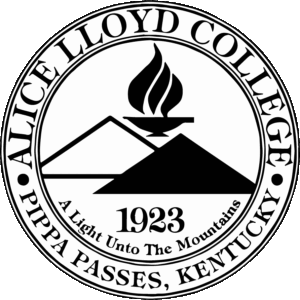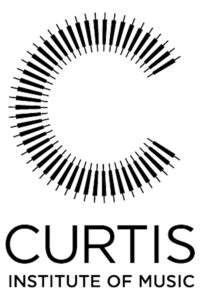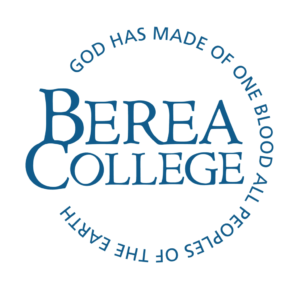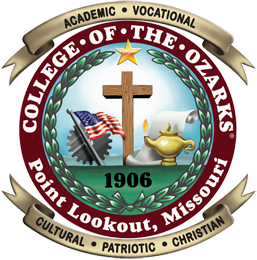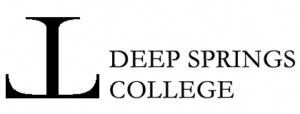Free Education
More information about this establishment here:
Official Site: https://www.alc.edu/
Briefly important information about this establishment:
https://en.wikipedia.org/wiki/Alice_Lloyd_College
Alice Lloyd College, a private liberal arts college founded in 1923, enrolls 599 students from 108 counties in the Appalachia Mountains regions of Kentucky, Tennessee, Ohio, Virginia, and West Virginia for free.Alice Lloyd College bachelor’s degree programs and pre-professional programs to prepare students for advanced studies in medicine, law, and more. Part of the college’s mission is providing an atmosphere in which Christian values are maintained.
U.S. News & World Report ranks Alice Lloyd College #7 in the 2018 edition of Best Regional Colleges (South).
The school typically accepts 22% of applicants. SAT test scores (25th/75th percentile) are as follows: Critical reading: 440/590; math: 470/540.
Alice Lloyd College provides free tuition for students from select Appalachian counties. All students are required to work at least 160 hours per semester in an on-campus job or in the local community in the Student Work Program. The cost of living in a dormitory is about $6,240 annually.
Accreditation
Alice Lloyd College is accredited by the Southern Association of Colleges and Schools Commission on Colleges (SACSCOC).
Students are required to work part-time regardless of financial situation.[12] They are given jobs such as janitorial staff, office assistant, tutor, craft maker, resident advisor, maintenance, grounds, or working in the cafeteria (Hunger Din). In addition to on-campus jobs, students can work on off-campus outreach projects.[12][13][14] Students are required to work at least 160 hours per semester.[15] The college is one of nine work colleges in the United States and one of two in Kentucky (Berea College being the other) that have mandatory work-study programs.
Students from 108 counties in the Appalachian Mountains region of Kentucky, Ohio, Tennessee, Virginia, and West Virginia pay no tuition through the Appalachian Leaders College Scholarship.[16][17]
More information about this establishment here:
Official Site: https://www.curtis.edu
Briefly important information about this establishment:
The institute formerly served as a training ground for orchestral musicians to fill the ranks of the Philadelphia Orchestra, although composers, organists, pianists, guitarists, and singers are offered courses of study as well.
Except for composers, conductors, pianists, organists, and guitarists, admission is granted only to the number of students to fill a single orchestra and opera company. Accordingly, enrollment is in the range of 150 to 175 students. According to statistics compiled by U.S. News & World Report, the institute has the lowest acceptance rate of any college or university (4 percent), making it among the most selective institutions of higher education in the United States.[14][15]
Nina Simone claimed her application for a scholarship was rejected because of her race, despite excellent credentials and audition performance. Simone was one of 75 pianists to audition in 1951; only three were accepted.[16][17][18] A short while before her death, Simone was awarded an honorary diploma by Curtis.[17]
More information about this establishment here:
Official Site:
Briefly important information about this establishment:
Berea College, a private, liberal arts college founded in 1855, provides a four-year degree programs in 28 fields.
The college has about 1,600 undergraduate students from all 50 states and about 60 countries; however, the majority of the students are from the Appalachia region of the U.S.
Berea College has an 11-to-1 student/faculty ratio. All students are required to live on campus, unless they are 23 years of age or older, married, or a parent.
Berea College ranks #68 in the by U.S. News & World Report 2018 o Best National Liberal Arts Colleges rankings.
The college has an 33% acceptance rate, and a 79.5% average freshman retention rate. SAT test scores (25th/75th percentile) are as follows: Critical reading: 490/600; math: 510/620.
The college, which serves students with limited economic resources, does not charge tuition. Room and board is $6,472 per year. Every student is required to work at least 10 hours per week in campus-approved jobs in over 130 departments.
Accreditation
Berea College is accredited by the Southern Association of Colleges and Schools Commission on Colleges (SACSCOC).
More information about this establishment here:
Official Site:
Briefly important information about this establishment:
College of the Ozarks, a private, Christian liberal arts college affiliated with the Presbyterian Church, offers more than 30 majors in a variety of areas. The college also provides pre-professional programs and certificates and pre-professional credentials.
College of the Ozarks has about 1,500 students and a 16-to-1 student/faculty ratio. Alcohol and drugs are prohibited on and off campus as part of a moral code.
College of the Ozarks is ranked #5 in the 2018 edition of the Best Colleges in Regional Colleges (Midwest). The College admits 14% of applicants. SAT test scores (25th/75th percentile) are as follows: Critical reading: 525/566; math: 500/593.
Full-time students at College of the Ozarks receive free college tuition. Ninety percent of applicants are required to show financial need to be accepted. Students are required to work 15 hours a week at an on-campus work station, as well as two, 40-hour work weeks during breaks. The school provides a summer work program to cover the $6,800 cost of room and board.
Accreditation
College of the Ozarks is accredited by the Higher Learning Commission (HLC).
More information about this establishment here:
Official Site:
Briefly important information about this establishment:
Deep Springs College, located on a cattle-ranch and alfalfa farm in Inyo County, California, educates a highly-select population of students. Founded in 1917, fewer than 1,200 students have graduated over its 100-year history. The college receives between 180 to 250 applicants each year, and enrolls around 15, with 10 more on the waitlist.
The college provides a unique alternative to the first two years of a traditional four-year education program. Over two-thirds of graduates of Deep Springs College have continued on to earn a graduate degree at other institutions.
Deep Springs College, established on the pillars of academics, labor, and self-governance, prepares students for lives of service to humanity. As a student-governed institution, students at Deep Spring College have the primary decision-making authority regarding admissions, curriculum, and hiring of faculty members.
During the admissions process, the college emphasizes academic ability, leadership potential, and a desire to assume active and practical responsibility for the ongoing life of the Deep Springs community.
Deep Springs College accepts SAT and ACT scores, but regards essays and the interview as more important factors in the admission process.
Each of its students receives a full-scholarship valued at over $50,000 per year. Students work, at a minimum, 20 hours per week on the ranch or farm, or in positions related to the college or community.
Accreditation
Deep Springs College is accredited by the WASC Accrediting Commission for Community and Junior Colleges.

